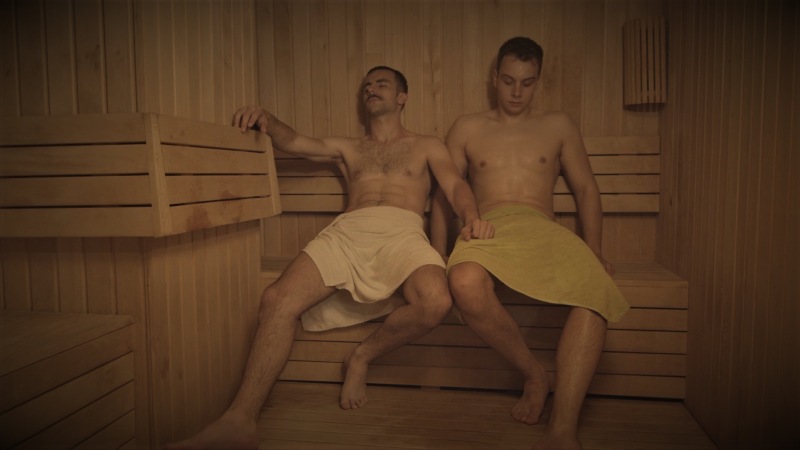Vassilis Kroustallls reviews the Serbian documentary 'Warm Film' by Dragan Jovićević.
Yugoslavian and Serbian queer cinema especially is another black hole to turn into when thinking of queer cinematic representation. Dragan Jovićević attempts with panache, directorial inventions, and an array of film clips to bring everything to the surface in 'Warm Film' (Topli Film - Operacija vazelin, 2024).
Djordje Mišina and Djordje Galić play a male bromance couple and act as both the investigators (and enactors) of the info they unveil on the screen. The story they tell is an interesting one. It starts as far as 1911 with 'The Life and Deeds of the Immortal Leader Karađorđe' by Čiča Ilija Stanojević; a kiss between two soldiers even predates the William Wellman's 1927 'Wings' similar homosocial kiss.
Like what happened on the other side of the Atlantic and the Hollywood industry (brilliantly captured by Rob Epstein and Jeffrey Friedman's 1995 'Celluloid Closet'), we can only get crumbs of queer representation, such as lesbian undertones in Rados Novakovic's 1948 film 'Sofka' - and up to 1950 to have a drag appearance on screen in 'The Red Flower' (Crveni cvet) by Gustav Gavrin. Bits and pieces of gayety continue, like two men sharing the same bed in the comedy 'Shared Apartment' (Zajednicki stan, 1960) by Marijan Vajda. Director Milan Jelic (1944-2023, interviewed in the film) proves to be one of the most frequent users of queer representation, predominantly using it for comedic effect in 'The Bug Killer' (Bubasinter, 1971) and 'The Spy in High Heels' (Spijun na stiklama, 1988).
Unlike the US representation of closeted, tormented gays (think of Minnelli's 1956 'Tea and Sympathy' or Wyler's 1961 'Children's Hour'), camp seems to be important in the then Yugoslavian queer representation -which, by the arrival of the 60s had progressed to the black parody of the Yugoslav Black Wave ( Dušan Makavejev, Žika Pavlović, Aleksandar Petrović, Želimir Žilnik some of the names).
The latter's 1995 'Marble Ass' (Dupe od mramora) remains a milestone in Serbian cinema, having won a Teddy Award at the 1995 Berlin Film Festival, and being the first socially realistic depiction of a trans woman in modern-day Serbia. ('Virgina' by Srdjan Karanovic, a more rural drama, of a gender-bending, Yentl-like variety had preceded, in which the female character needs to get dressed as a man to survive).
Modern-day Serbian representation seems to be more daring (explicit scenes etc.) and more hate-inducing. Dragan Jovićević's film spends much time narrating the first bloody Belgrade Pride attempts of 2001 and 2010 -up to the 2020 TV series 'South Wind', in which one of the main characters (played by Miloš Timotijević) reveals himself to be gay. The actor received hate messages, but this hasn't stopped younger directors like the openly gay Stevan Filipović, with films like 'Skinning' (Šišanje, 2010) and 'Next to Me' (Pored mene, 2015) to push further the envelope in queer representation.
Dragan Jovićević's 'Warm Film' seems a little befuddled about what to do with the reenactment of the bromance between the two actors (despite their efforts). It is also too anxious to fit everything into its short (for its subject matter) running time of 92 minutes, in consequence smoothing the peaks and the valleys of Yugoslav and Serbian queer representation. At the same time, it is an informed effort, a researched documentary, and enjoys a conversational tone. Funded by the National Film Serbia body, it is a good entry into the queer cinematic canon of a country that is still making slow moves toward acceptance amongst the racist, homophobic cries.
Vassilis Kroustallis
'Warm Film' screened at the 2024 Thessaloniki Documentary Festival.

